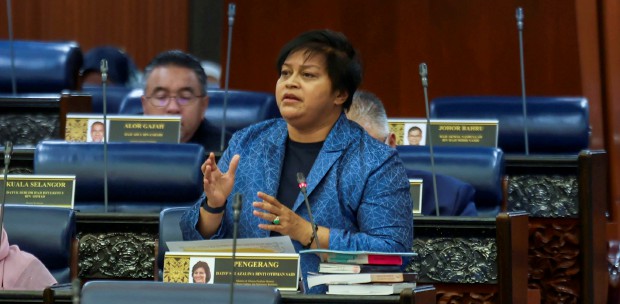"FINDING a niche" in international relations is a misnomer. We cannot find what was never lost to begin with. Most niches are already there, we just need to capitalise on them.
The phrase "finding a niche" is most often used in succeeding in business, in forging a career path, and yes — in establishing an international standing.
Great Power states — those states who by virtue of size, economy and population — wield influence enough to assure their voices are heeded and do not need to find a niche. They are the elites of international relations.
Countries like Malaysia are not Great Power states, so the argument is that we must find a niche in order to lead other countries.
In the 1980s, Malaysia went up against a number of Great Power states in the Antarctic Treaty System and brought the Question of Antarctica to the United Nations. It was said that Malaysia "found a niche" then by championing the common heritage of mankind.
In the 1990s, Malaysia led the charge at the Earth Summit in Rio de Janeiro, using the environment (and climate change) as the platform of its stand against the big, bad Great Powers.
Our niche then was said to be in arguing for common but differentiated responsibilities.
By 2005, the steam from arguing Antarctica had all but faded, and Malaysia was content enough to let the matter die at the United Nations.
Likewise with the issue of the environment — outside of the Rio meetings in 1992 and 2012, Malaysia has not been a major proponent of environmental concerns, much less led the pack in any way.
So, were these actual niches that we found? Or were they merely areas in which Malaysia was able to capitalise upon? This is the argument — that niches are there, have always been there, and will always be there.
If we want to lead the pack, then it will always boil down to Madeleine Albright's "us versus them", a tried and tested way of marshalling enough support from among the have-nots (in terms of Power) against those with power.
If we ever needed to find something, then it is a cause, not a niche. The idea of having a niche is not in finding it, but in creating it. The niche is one of the ideas that social science borrowed from biology, and specifically from evolutionary theory.
If we talk of niches, then it is niche construction that we need to commit ourselves to, not niche-finding.
At one time, we thought our niche was in exporting harmony, the "tiru macam saya" (follow as I do) advertising. So we pushed for Islam Hadhari. A few years after that we pushed for moderation.
Neither one took off on as grand a scale as our championing of the rights of the Palestinians, or of a world free of nuclear weapons, or even of insisting that there is a right to maintain capital punishment.
Why? Because there is no "us versus them" when it comes to hadhari or moderation — no one would stand up and say we don't want peace, or we don't want an end to conflict. The "us versus them" only works when there are actual countries on the other side of the cause that we are fighting for.
So now we are again a non-Great Power looking for a cause to champion, something that will again put us on the map. In this, there is no dearth of subject-matters to choose from. In fact, there are just too many that we can push on the world stage — the trick is in finding the right one.
Coordinating ourselves as a country is one of the better ways to do it. If the workhorses are on the same page, then that is half the battle won; an effort done in concert, in tandem, will always beat an effort done haphazardly with everyone running in every which direction.
The subject matters Malaysia has chosen are already laid out by the Foreign Ministry — health, the digital economy, cybersecurity, and Sustainable Development Goals, among others.
All that is needed is the angle by which Malaysia will position itself on these issues. The coming months will no doubt be pivotal to how Malaysia can successfully leverage on these niches.
For each and every subject matter, there will be a cause that we can champion. We just need to coordinate ourselves to capitalise on it.
The writer is a foreign service officer, with views on international affairs






